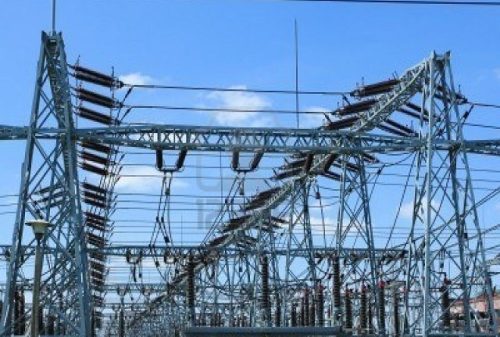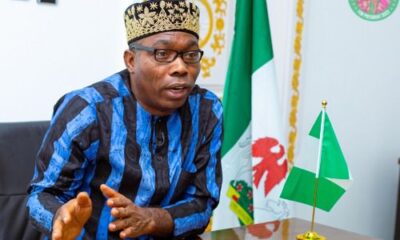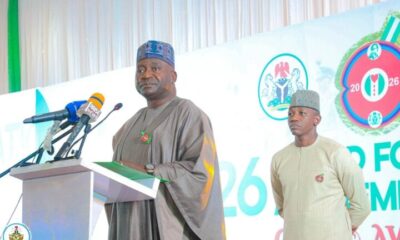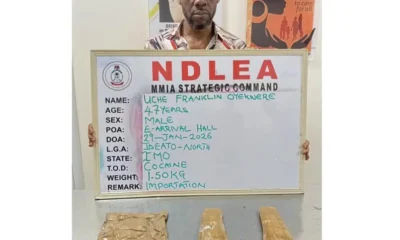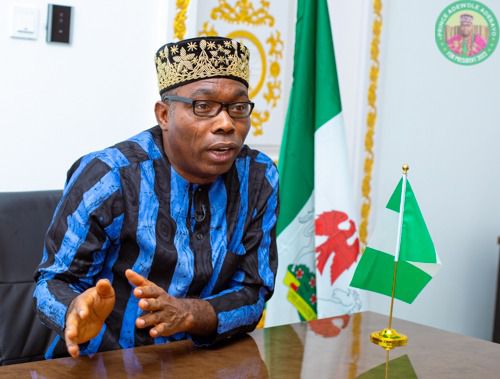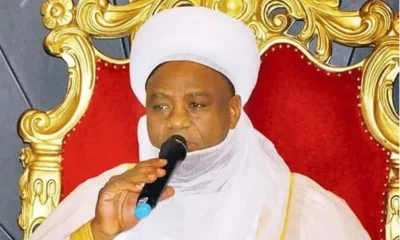If passed into an Act, it will empower the Nigerian Electricity Regulatory Commission to compel core investors in the 11 successor Discos to inject fresh capital or face stiff regulatory action, including share dilution, receivership, or outright re-privatisation.
This was disclosed in the draft amendment to the Principal Act, seen by The PUNCH, on Monday. The proposed Electricity Act (Amendment) Bill, 2025, has already attracted condemnation from the Forum of Commissioners of Power and Energy, warning that the bill poses a serious threat to the country’s newly decentralised electricity market and could reverse key reforms achieved under the landmark Electricity Act of 2023.
The bill also gives the commission powers to impose sanctions, including dilution of shares or re-privatisation, on defaulting Discos, particularly those under receivership or financial distress.
The PUNCH reports that there are 11 Discos in Nigeria that service different regions across the country. They include Abuja Electricity Distribution Company, Benin Electricity Distribution Company, Eko Electricity Distribution Company, Enugu Electricity Distribution Company, and Ibadan Electricity Distribution Company.
Others are Ikeja Electricity Distribution Company, Jos Electricity Distribution Company, Kaduna Electricity Distribution Company, Kano Electricity Distribution Company, Port Harcourt Electricity Distribution Company, and Yola Electricity Distribution Company.
Under the new law, a comprehensive framework must be developed within 12 months to overhaul the financial structure of the Nigerian Electricity Supply Industry, with a strong focus on attracting long-term local currency investments and phasing out what the bill describes as “unstructured and regressive subsidies.”
According to Sections 228J and 228K of the amended Act, the Minister of Power, in consultation with NERC, is required to develop and implement a robust financing framework aimed at de-risking investments across the power value chain and resolving the sector’s chronic debt overhang, estimated at over N4tn.
However, power sector experts and consumer advocacy groups have argued that the proposed law, if passed, can only be effectively implemented if the long-standing subsidy debts crippling the sector are first cleared.
They also recommend extending the recapitalisation deadline to 24 months, similar to the approach adopted during the banking sector recapitalisation, to allow for a more realistic and structured transition.
A copy of the amended act read, “Financing of Projects in the NESI: The Federal Government shall, through the minister and in consultation with the Nigerian Electricity Regulatory Commission, establish a comprehensive framework for financing of projects in the NESI within 12 months from the commencement of this Bill.
“The framework referred to under subsection(1) of this section shall give regard to the extant National Electricity Policy and Strategic Implementation Plan and aim to attract and de-risk investments across the power value chain from generation, transmission, distribution, reduce diesel and petrol-based self-generation and address crippling financial crisis and debt overhang in the Nigerian power sector.”
The proposed Act stipulates that the new financing framework must prioritise long-term local currency financing for gas-to-power and distributed energy projects, a transparent and predictable tariff regime that guarantees cost recovery, the recapitalisation of Discos under NERC’s supervision, a clear determination of federal and state equity stakes in the Discos, and the provision of fiscal and tax incentives to attract investment and avert a sector collapse.
It noted, “The framework established under section 228I of this Bill shall include, but not limited to the following: long-term local currency capital financing for gas-to-power optimisation projects; distributed energy projects, etc, to mitigate foreign exchange risks for investors;
“Commitment to a transparent and predictable tariff regime that allows for cost recovery for efficient operators, progressively phasing out regressive and unstructured subsidies.
“Concession of certain power plants under the portfolio of the Niger Delta Power Holding, as well as commencement and completion of successor Discos’ recapitalisation to be implemented through the directive and supervision of the Nigerian Electricity Regulatory Commission.”
It further stated that the regulatory commission shall have the power to direct the core investors in the 11 successor distribution companies, including those under receivership, to recapitalise their respective equity holdings within such a time frame not exceeding 12 months from the commencement of this bill, and in deserving circumstances impose appropriate sanctions for non-compliance with its directive under this subsection, including an order for dilution of such shares held by core investors or re-privatisation.
It added, “A determination of Federal Government equity stakes in the 11 successor distribution companies with a clear timeframe of not later than 12 months from the commencement of this bill, for both the federal and state governments to make their respective contributions reflective of their equity holdings in the 11 successor distribution companies; and
“Such other mechanisms, such as fiscal and tax incentives to prevent the collapse of the NESI. Without prejudice to the provisions of subsection (2)(c) of this Section, the commission shall have the power to direct the core investors in the 11 successor distribution companies, including those under receivership, to recapitalise their respective equity holdings within such a time frame not exceeding 12 months from the commencement of this bill, and in deserving circumstances impose appropriate sanctions for non-compliance with its directive under this subsection, including an order for dilution of such shares held by core investors or re-privatisation.
“The commission shall consult widely and take such measures as are necessary to ensure that the implementation of any order or directive on recapitalisation under sub-section (3) of this section neither disrupts continuity of service nor undermines investor confidence in the NESI.”
The government’s tough stance follows years of poor performance by the Discos, which continue to deliver erratic power supply despite multiple interventions, including debt forgiveness, financial bailouts, and tariff adjustments.
In May, the Federal Government openly expressed disappointment in the Discos, accusing them of frustrating ongoing reforms. At a media briefing in Abuja, the Minister of Power, Adebayo Adelabu, lamented that despite trillions of naira sunk into the sector, many Nigerians remain in darkness.
“The performance of the Discos has been grossly underwhelming,” Adelabu declared. “We can no longer tolerate excuses. If you can’t invest, give way to those who can.”
“We need to get tough with the Discos, as they can easily frustrate all the gains we have made. They have disappointed us in performance expectations. Whatever we do in generation does not mean anything to consumers if it is frustrated at the distribution points”.
A May 2025 report by the Bureau of Public Enterprises showed that more than 70 per cent of Discos have failed to meet key performance benchmarks set at the time of privatisation in 2013.
Reacting to the proposed timeline and pending directive, an official of power distribution companies dismissed concerns over the impact of the recently amended Electricity Act on Discos, saying the law is binding when assented to, and must be implemented by all stakeholders.
Reacting to industry debates surrounding the new legal provisions, the official, who spoke on condition of anonymity due to the lack of authorisation to speak on the matter, told The PUNCH that the focus should be on compliance and collaboration rather than resistance.
“It is totally irrelevant to say the law affects Discos. When the National Assembly makes laws, it is binding on all of us. What we should all do is to collectively implement and follow the law,” the official said.
The source noted that the amendments strengthen the powers of the Nigerian Electricity Regulatory Commission, a move the Discos are prepared to support.
“The regulatory commission has its powers, and when there is an amendment that further enhances that power, we are all for it. We believe in the wisdom of the National Assembly to amend the law, and we are ready to work with all stakeholders to ensure that the laws are implemented,” he added.
An electricity market expert, Chinedu Amah, says that the electricity sector challenges are not due to a lack of policies, but rather a failure to implement existing frameworks effectively.
The expert noted in an interview on Tuesday that Nigeria is already saturated with policies and proposals, stressing that “policy overload” has become a recurring problem in the sector.
“We have policies on everything in Nigeria. So I don’t think it is a policy problem. Yes, there are policy gaps, but maybe we should just remove all the subsidies, flatten the tariff regime, and allow the market to drive investments,” the source said.
He added that while distribution companies have a responsibility to expand the grid and invest in infrastructure, the conversation must go beyond mere obligations.
“I don’t think it’s enough to say Discos need to make investments. You can’t force them to grow their business. But if there’s a critical infrastructure gap, it must be solved, whether by government, the private sector or through partnerships,” the official said.
However, another Power sector analyst, Habu Sadiek, called for key preconditions to ensure the initiative’s success. Reacting to provisions in the recently amended Electricity Act, Sadiek welcomed the plan but stressed the need for the government to first address pending financial issues within the sector.
“I think it’s a good thing,” he said. “But the government needs to do two things before initiating a recapitalisation programme: settle all outstanding subsidy payments and allow cost-reflective tariffs to prevail.” According to him, without resolving these issues, recapitalisation may not achieve its intended objectives.
He also criticised the 12-month window proposed for Discos to recapitalise, suggesting it was too short and unrealistic given current economic pressures. “Giving the current Disco owners 24 months, rather than 12, would have been better, similar to the Central Bank of Nigeria’s recapitalisation programme,” Sadiek added.
Additional efforts to get comments from the NERC on the issue proved abortive as the phone number of the Director, Public Affairs, Usman Arabi, was unreachable.
Meanwhile, the Minister of Power, Adebayo Adelabu, confirmed ongoing efforts to deploy special teams to underperforming power distribution companies as part of a broader restructuring programme.
Recall that in May 2025, the ministry announced a major overhaul of the power distribution sector, beginning with a pilot reform programme targeting two underperforming electricity distribution companies.
The pilot, scheduled to commence between May and August 2025, will involve one Disco each from the Northern and Southern parts of the country. The plan to restructure the companies came after a meeting with the Japanese International Cooperation Agency, which presented a roadmap titled “Revamping of the Distribution Sector in Nigeria”.
But giving an update on the process which is scheduled to end next month, the Special Adviser, Strategic Communications and Media Relations to the minister, Bolaji Tunji, on Monday, said the process is still ongoing. “It is an ongoing thing and we will brief you at the appropriate time,” he simply stated.
FOLLOW US ON:
FACEBOOK
TWITTER
PINTEREST
TIKTOK
YOUTUBE
LINKEDIN
TUMBLR
INSTAGRAM

 Lifestyle21 hours ago
Lifestyle21 hours ago
 Lifestyle20 hours ago
Lifestyle20 hours ago
 News18 hours ago
News18 hours ago
 News20 hours ago
News20 hours ago
 Lifestyle3 hours ago
Lifestyle3 hours ago
 News29 minutes ago
News29 minutes ago
 Crime18 hours ago
Crime18 hours ago
 Business2 hours ago
Business2 hours ago
